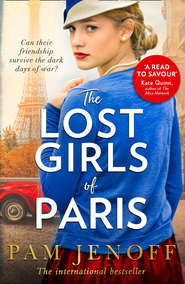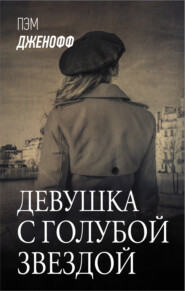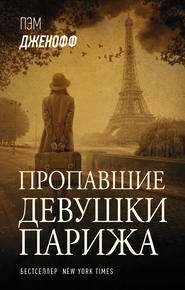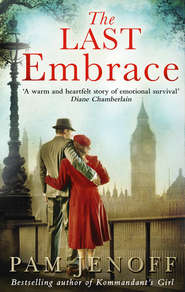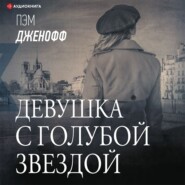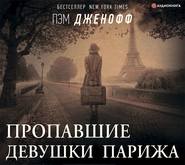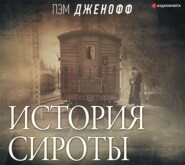По всем вопросам обращайтесь на: info@litportal.ru
(©) 2003-2024.
✖
Kommandant's Girl
Настройки чтения
Размер шрифта
Высота строк
Поля
“Not enough.”
The stranger spoke then. “In Warsaw, they are organizing within the ghetto.”
“Warsaw is different. The movement, the ghetto itself, everything is bigger,” Alek said.
“If only Minka can get …”
“Emma,” Helga said, coming up behind me and making me jump. “Do you need help with those plates?”
“N-no, thank you,” I stammered, afraid she had caught me listening. I balanced a stack of plates on my forearm and made my way to the kitchen. As I placed the dishes in the sink and turned the tap on, I heard the door to the back room creak and the men still talking as they made their way to the front door. Alek paused at the kitchen entrance and whispered something to Helga. The three men exited the apartment.
A few minutes later, as I was drying the plates, Helga came over to the sink. “I’ll finish this,” she said, taking the towel from my hands. “Would you mind taking out the garbage on your way down?” She pointed to two bags by the kitchen door. I thanked her and bid the others good-night.
At the bottom of the stairs, I turned and found the back door leading out to the alley. Outside, it was pitch black. I blinked several times, trying to adjust my eyes to the light, before feeling for the step downward. It was a deeper step than I had thought, and icy. I stumbled, almost dropping the garbage bags in the process. “Oh, oh!” I cried.
“Careful,” a deep voice said from the shadows.
I jumped, caught off guard. Then I recognized the voice. “Alek!” I gasped. “What are you doing here? You frightened me.”
“Shhh,” he whispered, taking the bags from me and setting them by the garbage cans. “Come here.” He grabbed my sleeve. He must have asked Helga to have me bring down the garbage in order to speak with me, I realized, as he led me to the far corner of the alley where two buildings met. What did he want? Had I done something to make him mad? I wondered if he had seen me listening by the door. “I have a message.” His voice did not sound angry. He pressed a tiny crumpled slip of paper into my hand.
My heart leapt. “From Jacob?” I asked, my voice rising.
“Shh!” he admonished. He lit a match. “Read it quickly.” I unfolded the paper.
Dearest love,
I am well. I miss you more than you know. Take care of yourself, and do not give up. Help is coming.
Emmeth
There was no signature. Emmeth was the code word Jacob and I had chosen before his disappearance; it was Hebrew for truth. I read the note over and over, until the match threatened to burn Alek’s fingers and he was forced to blow it out. “I don’t understand. Is he near?”
“No, quite the opposite. That note traveled many hundreds of kilometers to reach you.”
“Where is he?”
“Don’t ask me that,” Alek replied sharply. “He is safe, that is all you need to know.”
“But …” A million questions raced through my mind.
“He is on a … procurement mission,” he said. “Getting things that are very important to us. I can’t tell you any more than that.”
I suddenly realized that my husband was the man about whom they had been speaking in the back room. “Minka?” I asked, forgetting I was not supposed to have heard.
“Yes. Outside the ghetto, we refer to one another by our aliases for safety’s sake. But you should not have been listening to our conversation. Believe me when I say that the less you know, the better.”
“I understand.” But I didn’t really. My mind whirled. Where was Jacob? Was he okay? What did his note mean?
“Your husband has a talent for getting things, for finding what we need and persuading people to help us.” I smiled at this, imagining Jacob’s imploring expression and cajoling tone. I could never refuse him anything, or stay mad at him when he looked at me like that. Alek continued, “He also knows a great deal about guns and munitions.” I realized then how very little I knew about the man I had married. “All right then.” Alek reached over and took the paper from my hand. “You can’t keep that. I’m sorry.” I watched in dismay as he lit another match and held it to the corner of the note.
“But …” I started to protest. Then I stopped, knowing he was right. If the paper was somehow found and traced to Jacob, it could be dangerous. I thought of our marriage certificate and rings, hidden in a book underneath my mattress in our apartment. Nobody knew that I still had them.
“Emma, I know this is difficult for you,” Alek said when the paper was gone and the flame extinguished. The air around us was dark and cold once more. “You must have faith. Jacob is okay, and you are not alone. At least you have your family.” His voice sounded hollow as he said the last part.
“What about you, Alek?” I could not help but ask. I knew only from what Marta had told me that he had a wife and that she was not in the ghetto.
“My family lived in Tarnów before the war.” His voice was flat. “My parents weren’t fighters. They were terribly afraid. The night before the Nazis came for us, they lay down in bed, took something. The next morning they were dead.”
“I’m so sorry,” I said helplessly.
“And my wife is not in the ghetto,” he added. I could not tell from his tone if he considered this a good thing.
“So you are alone here?”
“Yes, except for my cousin, Helga.” Surprised, I pictured the round-faced cook in my mind. I had not known they were related. “So you see, I understand what you are feeling being away from Jacob. We have to be patient.” I nodded. “Okay, hurry home now. I promise to let you know if I hear anything more about him.”
If, I thought. Not when. “Thank you, Alek.” I reached up and kissed him awkwardly on the cheek, then turned and walked quickly from the alley. On the way home, I puzzled over all I had learned. Jacob was traveling somewhere, getting weapons for the resistance. I shuddered. It sounded terribly dangerous. But at least he is alive, or was when he sent the note to me. My thoughts shifted to Alek. He, too, was separated from the person that he loved. And he was the head of the resistance, yet his own parents had given up, refused to fight. I considered my own parents, who kept going day after day. Suddenly, their simple acts of getting up each morning, of putting one foot in front of the other, seemed remarkably courageous. They did it, I knew, for me. As I reached the safety of our apartment, a wave of gratitude washed over me, and I had to fight the urge to go over to their mattress and hug them as they slept.
I undressed and lay awake in bed, thinking of Jacob and the note. Alek had been unwilling to tell me where he was, but I had seen the piece of envelope on which it was written. The postmark was from Warsaw. It didn’t mean that he was there, but maybe … I shivered. The one place that was more dangerous than Kraków. And his message: help is coming. The words echoed in my head until my eyes grew heavy and I fell into a deep sleep.
That night I dreamed I was with Jacob in the mountains. It was bitterly cold and we were being chased by wolves through deep snow. My feet had gone numb. The harder I ran, the slower I moved, until at last I was several hundred meters behind but he did not notice. “Jacob!” I cried, but he was too far ahead to hear me. One of the wolves leapt at me and I fell, screaming.
I awoke with a start. A floorboard creaked. It was just a dream, I told myself, drawing the blankets closer. But I could not fall back to sleep. On the other side of the curtain, my mother snored. The floor creaked again, louder this time. A shadow appeared suddenly by my bed. I sat up, but before I could react, a hand clamped over my mouth.
“Quiet!” a strange voice whispered. “I’m not here to hurt you.” Panicked, I struggled to break free, but the stranger’s grip was too strong. “Stop it! Alek sent me.” I could make out the stranger’s face faintly in the darkness. He was the man who had been arguing with Alek and Marek in the back room after dinner. “Emmeth,” he said, his voice barely audible. “Emmeth.” I relaxed slightly as the stranger repeated my and Jacob’s code word. I realized then that it was Jacob, most likely through Alek, who had sent this stranger to me.
“Who …?” I started to ask as he released his hand from my mouth.
“Shh! There’s no time. Get dressed.” I leapt up. Maybe Alek had at last found a way for me to help, I thought as I hurriedly put on my work dress over my nightgown. Perhaps Jacob needed me. I climbed into my boots and coat, and followed the stranger toward the door of our apartment. A few feet before the door, I paused by the curtain that separated my parents’ bed from mine. I drew back the curtain. My parents were sleeping soundly, my father’s large arm wrapped protectively around my mother.
“Come,” the stranger whispered harshly, tugging at my arm. I let the curtain drop and followed him from the apartment. The stairway was dark, and each step creaked beneath our feet. At last, we reached the ground and stepped out the back door of the apartment building.
Taking my hand, the stranger led me through the back alleyways of the ghetto. The streets, slick with frozen moisture, were empty except for several large rats scurrying between the gutters. A few minutes later, we reached a corner of the ghetto I had never before seen. There, a crack no more than twelve inches wide separated two sections of the outer wall. Looking furtively from side to side, the stranger pushed me ahead of him, and I realized he meant for me to fit through the hole. I sucked in my breath and held it, forcing myself into the hole. Halfway through, I could go no farther. “I’m stuck,” I whispered, panicking. The Nazis would surely find me here, trapped. I felt the stranger’s arms on me, pushing me hard from behind. The rough stone edges scraped my skin and threatened to tear my clothes. Finally, I broke free and found myself standing on the other side of the wall. Grunting, the stranger then squeezed through behind me.
Grabbing my arm, the stranger pulled me into an alleyway, then peered out onto the street in both directions. “Come,” he mouthed silently, tilting his head to the right. He began to walk with small, swift steps, hugging the side of the building, remaining in the shadows. I obeyed, following as quickly and quietly as I could. At that moment, shocked and confused, I did not realize I had just escaped from the ghetto.
CHAPTER 5
Without speaking, the stranger led me through the empty back streets of Podgorze. I struggled to keep up and to mimic his swift, silent footsteps. My mind switched continuously between bewilderment, a sense of wonder of being outside and terror that we would be caught at any moment. Even our smoky breath threatened to betray us in the cold night air. Finally, the houses thinned and gave way to industrial warehouses. The paved road became dirt, then a crooked, snow-covered path leading into the forest.
Only when we had been enveloped by the trees did the stranger speak. “I’m a friend of Alek’s.” He paused. “And Jacob’s.” He did not slow or turn to face me. “They sent me to take you away.”
“To Jacob?” My voice rose with excitement.
“Shh!” The stranger stopped and looked around. “Not to him. I’m sorry,” he said, seeing my face fall. “He wanted to come himself but it would not be safe.”
Not safe. Nothing was safe. “Then where?”






